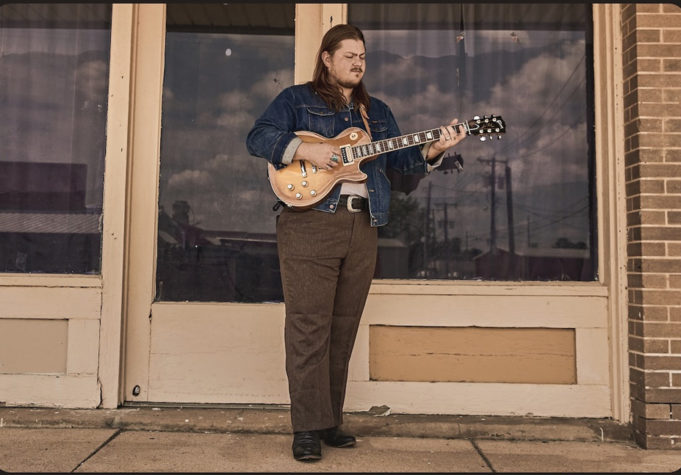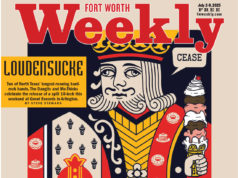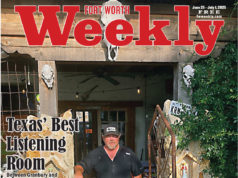On his third album, Vincent Neil Emerson has departed a bit from the acoustic-driven Americana of his self-titled debut and the hold-steady honky-tonk of 2019’s acclaimed Fried Chicken & Evil Women. Produced by Outlaw Country revival maestro Shooter Jennings, The Golden Crystal Kingdom is a 12-song love letter to the classic California country of the mid 1960s. The Choctaw/Apache singer-songwriter from Fort Worth blends his traditional country stylings with airy folk ballads and more than a dash of the up-tempo, electric guitar-centric Bakersfield sound made popular more than five decades ago by the likes of Buck Owens and Merle Haggard.
“I’ve always found the combination of country and rock interesting,” Emerson said of the sonic inspiration behind his third effort for power-indie La Honda (distributed by RCA). “I was listening to a lot of rock ’n’ roll from the ’60s and ’70s when I came up with these songs,” he said, offering “people like Gram Parsons, Stephen Stills, and Neil Young” as particular influences.
In the spirit of that Cali-country blend of folk and rock, the volume is certainly turned up in places. “Hang Your Head Down Low” is a lowlife anthem driven by a fuzzy minor blues riff. “The Man from Uvalde” is a melancholy rocker about one of this state’s most tragic mass shootings and is punctuated by Charlie Daniels Band-style rock-and-fiddle stabs. “Co’dine” even drifts into raucous psychedelia reminiscent of The First Edition’s most drug-addled adventures, yet it’s album closer “Little Wolf’s Invincible Yellow Medicine” that is perhaps the best example, serving as the dynamic emotional climax of Crystal Kingdom. Building from simple acoustic picking and mournful pedal steel whines, distorted guitars clap like thunder as the traditional story-song climbs to a rocking crescendo.
As intriguing a direction as the new rock influence is, it just might be Emerson settling into familiar territory that makes for Crystal Kingdom’s main features. Trad-style honky-tonk remains his easiest avenue of delivery. “On the Banks of the Old Guadalup” and LP opener “Time of the Rambler” are just two examples of how naturally Emerson’s voice and his writing get along with a good ol’ pedal steel, fiddle, and a bass slowly bouncing on the fourths and fifths.
Though dance hall numbers might be his comfort zone, the record’s folkier side might deliver its hidden highlights. “Clover on the Hillside” and “I’ll Meet You in Montana” are quintessential illustrations of how Emerson’s calm, understated delivery are really all that’s needed to carry a song. His voice is certainly at home among the frills, yet it stands tallest removed from all the layers.
If it isn’t “Yellow Medicine,” the album’s highwater mark might be Emerson’s simple cover of “Time of the Cottonwood Trees.” In place of fellow Texas troubadour Charley Crockett’s shuffling Don Williams-esque treatment, Emerson’s is a stripped-down acoustic take. The fluid fingerstyle trills recall Dylan’s “Don’t Think Twice, It’s Alright,” lending a dreamy aspect to Crockett’s folktale of imagined love. It’s certainly the album’s most tender moment.
Despite its newfound diversity of sound for Emerson, the record sits as a mature and cohesive work. The singer-songwriter has been one of the area’s better examples of faithfulness to country traditions while maintaining an authenticity so many throwbacks seem devoid of. Like Sturgill Simpson’s essential debut High Top Mountain, The Golden Crystal Kingdom reflects a devotion to classic sounds without stooping to pure revivalism simply for revivalism’s sake. All that Emerson cooks up seems as natural to him as it was to his inspirations half a century ago.












